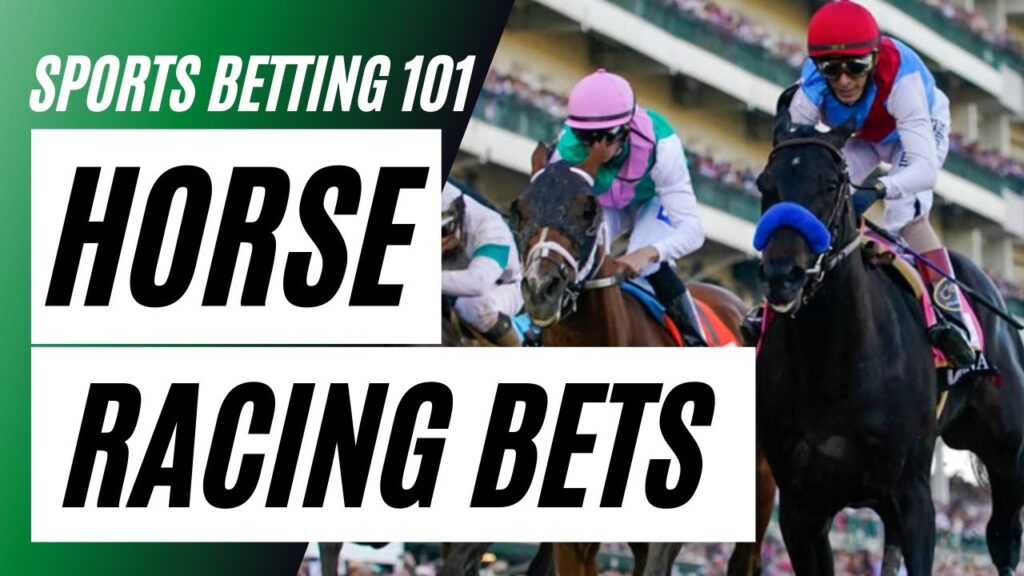How to Master Horse Betting
Horse racing is an equestrian sport that has been practiced over the centuries; the chariot races of Roman times are an early example, as is the contest of the steeds of the divine stallions. It is virtually the only sport in which horses compete as equals, in spite of the fact that pointers, or bristle, are aimed at the animals. (Another exception would be the drawing of lots in some wild ass races, although the scoring is often applied in name only to the owner of the animals.) On all accounts, horse racing is a staggering pastime.

Of all the sports now patronized by men, horse racing most clearly reflects the most terrifying competition. The psychology of racing is akin to combat, and the mastery of this form of sport is relative to the fitness of the animals, the experience of the jockey, and the weather. It is a sport in which inveterate gamblers place the most money, and it is an old sport, too, far removed from the factories and faster than ever before in its transition from the Middle Ages to the modern era. It is worth noticing that the bet on a winner takes on fixed prices, so that every winner has an equal chance of sharing in the spoils, and it is a sport in which, as in any technical art, the perfection and skill of the competitor is measured in his relation to the master and his craft.
The manner in which betting is usually conducted in horse racing is not unlike the way in which land-based bookmakers conduct their own kinds of bets in sports. What holds this kind of activity together, however, is that it is not merely a transaction of money but a transaction of time. Literally, it is the act of watching over or engaging in a bet in anticipation that one will make a profit by way of a prediction. By this means, one preparing to place a bet can have some idea of the competitor's course of action as well as his methods of betting.
In horse racing, it is not necessarily the act of betting which determines victory or loss but the ultimate choice of horses that either win or lose the race. This ultimate choice of the winner or the defeated horse is called the race itself, and the transformation of a race, or the making of a New World, from one in which horses lose to one in which horses win, is called a race. Naturally, the outcome of any such race is the result of the utmost skill and inventive risk-taking by the contenders. Making bets in horse races is a tricky business since the act of extrapolating from the past is a risky process if one is to predict the future.
racetrack betting systems
Some systems may be entitled as 'systems' in which the rules of the bets areStraight bets or wagers with no deductions for either a Win or a Place, separately ranking horses in the order of their profitability. These are, classed as such only if a Straight bet is involved. The horses must qualify for the Win, Place or Show on the correct date and distance. Such systems may befit some of the descriptions, specifications and other features set forth in the Annotated Baccarat, Blackjack, Craps, Roulette, and Wheel of Fortune, each of which are honored as systems by specialists and in many cases, their names receive the preference.
The Baccarat, Craps, Dice, Roulette, and Wheel of Fortune give the most popular betting systems. The Dewapoker Baccarat is a bet in which the players place their money on the player or the banker as the outcome of the hand. It is one of the most simple of all gambling games, and it rests on the fact that if the player or the banker has a negative hand, the players cannot make any claim for the bet except for the interest it pays up. Such a hand by a player is called 'Baccarat Banque' and 'Banque Betise'. These terms are derived from the French words 'buying the bank' or 'something that doesn't cost much'. The game of Baccarat can be found in any number of thebooks of the period,though it is in American English.
Craps is perhaps the most illustrated of all the games of chance. The players place their money on the outcome of any roll or series of rolls. It can be a roll of the dice or a series of dice rolls. If the result of the dice rolls matches the total of the numbers that one predicted, one wins and loses. The person can also bet on the total of a certain number rolled by the shooter. The game of Craps is often referred to as '20-Rolls' because, as the dice are rolled, the players bet whether the number 20 will be rolled before or after a certain number of rolls.

